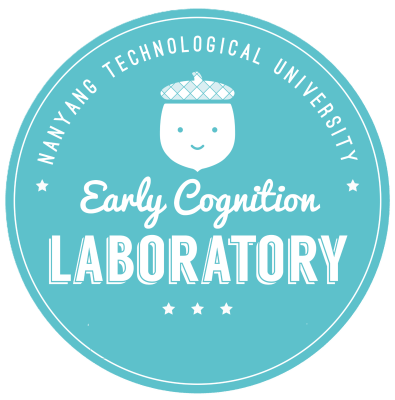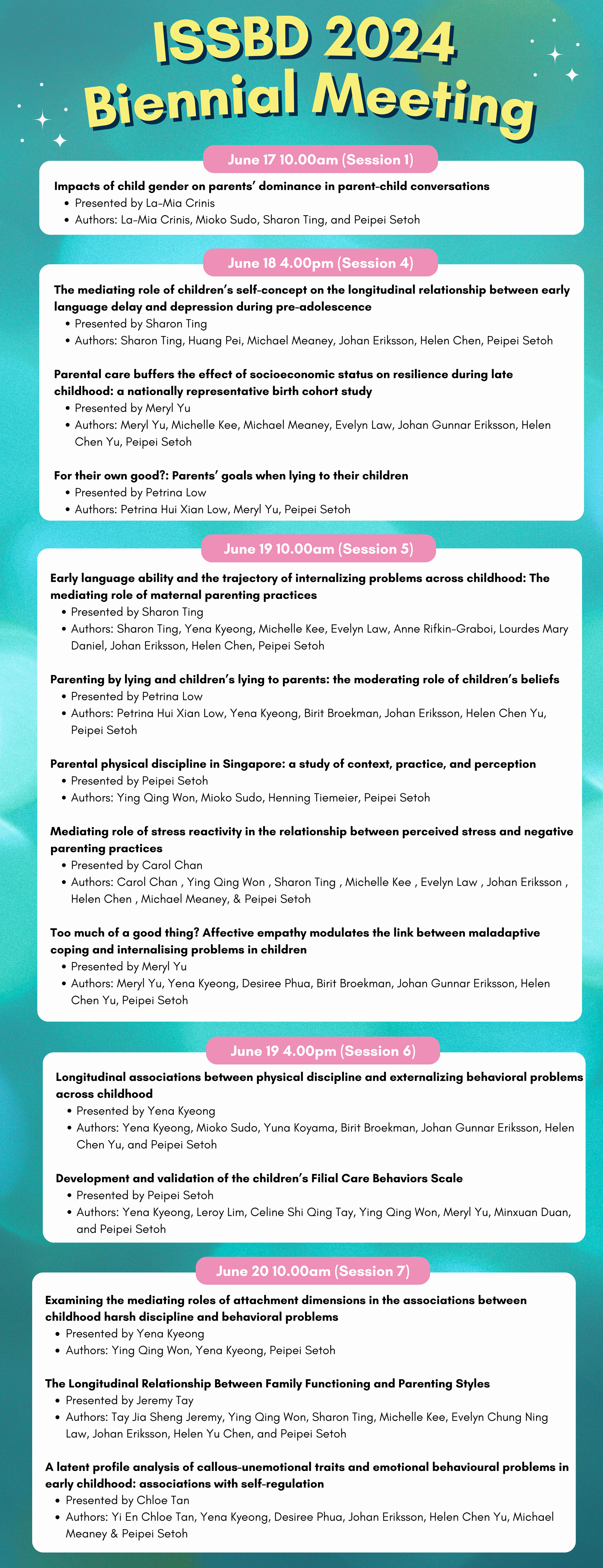Earlier this month, several members from our lab had the honour of attending the Society for Research in Child Development (SRCD) 2025 Biennial Meeting, held in Minneapolis, Minnesota. Let’s hear from our team as they reflect on their experiences and key takeaways from the conference!


Jerron Leow, Final-Year Project (FYP) Student:
“SRCD 2025 was my first ever experience at an international conference, and I am thankful for all the support from the lab on improving my poster. Throughout the past year, Prof Setoh, as well as Meryl, Zhan and Germaine have patiently and painstakingly guided me through the creation of my poster from start to finish, and I couldn’t have asked for better supervisors 🫡
In my own poster presentation, I had a great time chatting with other researchers and I’m happy that a couple of them were quite invested in learning more about my research! The most fun conversations that I had were with Lin Bian’s students, especially with Kim Seowoo about her research on brilliance stereotypes in Korea! Overall the experience at SRCD was great and it was a great learning experience for me.”

Germaine Tng, Postdoctoral Research Fellow:
“I recently had the opportunity to deliver two presentations at the SRCD 2025 conference, in which I shared about my work on home environments and children’s socioemotional development. This was my first experience presenting at an international conference, and I am deeply grateful for the wonderful support of Professor Setoh and all the lab members who supported my preparation process.
I especially enjoyed Dr. Liliana Lengua’s talk on the cascading influences of cumulative risk on children’s self-regulation and social-emotional adjustment in low-income households in the United States. Her presentation, along with the entire symposium on risk and resilience processes in childhood, have profoundly inspired my ideation and conceptualization processes as I think about research work in the realm of socioeconomic risk and child development.”
Zhan Lin, Ph.D. Student:
“This was my first psychology conference experience, and I’m incredibly grateful for the lab’s support in refining my poster. Every round of revision sharpened my thinking.
Attending the conference was a great opportunity to practice presenting research concisely and interactively. I enjoyed engaging with researchers who share similar interests and learning from their inspiring presentations. One of my favourite talks was Prof. Joshua Jeong’s discussion on evaluating financial incentives for paternal engagement within a fatherhood program in Tanzania. It was thought-provoking to consider how economic incentives relate with psychological motivation and engagement. Overall, I truly enjoyed the learning and social experience at SRCD!”


Petrina Low, Ph.D. Candidate:
“This SRCD experience was especially enjoyable for me as I felt less nervous presenting my research to many friendly faces, with the help of the lab’s invaluable feedback. I am always grateful to have found a wonderful community of fellow parental lying researchers. It was exciting to see the cross cultural and innovative research that we discussed last SRCD come to fruition in the talks about parental lying too.
I also appreciated the experience of travelling with our lab members, who kept the trip filled with laugher and good talks despite being in a new environment and travel fatigue. SRCD and Minneapolis wouldn’t have been the same without them!”




















 Kristy: When presenting my posters, having a third-person perspective from people who do not know about my project was truly valuable. I greatly appreciated their affirmation of my research’s significance, which helped greatly to quash doubts that I had about the meaningfulness of what I have been doing in the past year.
Kristy: When presenting my posters, having a third-person perspective from people who do not know about my project was truly valuable. I greatly appreciated their affirmation of my research’s significance, which helped greatly to quash doubts that I had about the meaningfulness of what I have been doing in the past year.
